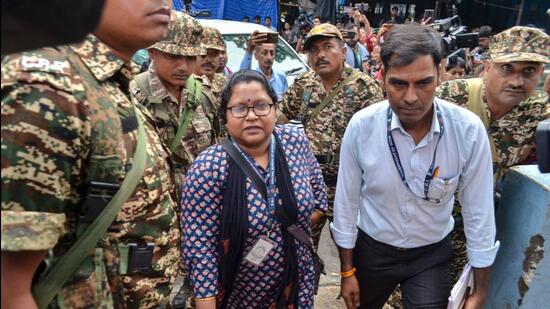
At the core of the dispute is a case concerning alleged irregularities in recruitment in the Darjeeling Hills’ GTA, a semi-autonomous body. The Calcutta High Court had earlier ordered a preliminary inquiry by the CBI, bypassing the state police. This decision had drawn the attention of various stakeholders, with concerns raised about the overreach of judicial authority and potential encroachment on the state’s investigative powers.
In a stern rebuke, the Supreme Court highlighted that transferring cases from state investigative bodies to central agencies like the CBI should not be done arbitrarily or without detailed justification. It emphasized the necessity for constitutional courts to provide comprehensive reasoning, especially in cases involving sensitive issues such as recruitment in politically and socially significant areas like the Darjeeling Hills.
The court further pointed out that the Calcutta High Court failed to substantiate its decision adequately. According to the apex court, simply ordering a CBI inquiry without citing concrete reasons undermines the autonomy of state law enforcement agencies. The judgment is likely to set a precedent in future cases where courts seek to intervene in state-level investigations, providing a much-needed framework for judicial review in matters of this nature.
The case stems from allegations that several irregularities took place in the recruitment process within the GTA, which oversees various administrative matters in the Darjeeling Hills. The GTA, formed after years of political turmoil, is responsible for governance in the region and managing local affairs. Recruitment within this body holds particular significance due to the region’s socio-political complexities. Reports had surfaced alleging that the hiring process was marred by favoritism and nepotism, leading to calls for an impartial investigation.
Various petitioners, who raised these concerns in the Calcutta High Court, had argued that a neutral probe by the CBI would be more appropriate, given the potential political influence on the state police. The High Court, agreeing with this argument, had directed the CBI to conduct a preliminary inquiry into the matter.
However, the Supreme Court, in its ruling, maintained that while the judiciary holds the power to direct investigations, this authority should be exercised with caution. The top court emphasized that judicial interventions in state matters, particularly concerning law enforcement, must be backed by clear and logical reasoning. It further noted that in cases where state police are bypassed in favor of central agencies, a delicate balance must be maintained to avoid undermining state institutions.
The ruling is seen as a significant development in the ongoing debate over the role of central investigative agencies in state matters. Over the years, the CBI has been called in to handle investigations in several politically charged cases across various states, often at the behest of higher courts. Critics have argued that the frequent intervention of central agencies risks politicizing investigations and eroding the credibility of state police forces.
In the case of the GTA recruitment probe, the Supreme Court’s ruling is expected to have far-reaching implications for how future investigations in politically sensitive areas are handled. By reaffirming the need for a detailed rationale when transferring investigations to central agencies, the court has set a higher bar for judicial oversight in such matters.
This development also shines a spotlight on the unique challenges faced by the GTA. The semi-autonomous body, established after a lengthy period of agitation for a separate state of Gorkhaland, plays a crucial role in the governance of the Darjeeling Hills. Its functioning, however, has been marred by allegations of corruption and mismanagement, particularly concerning recruitment and resource allocation.
Political analysts are now closely watching how the ruling will affect future governance in the Darjeeling Hills, where the delicate balance between local autonomy and central oversight has long been a contentious issue. The GTA, while designed to provide local governance and greater control over regional affairs, has frequently found itself at odds with both the state government and central authorities. Allegations of irregularities, particularly in the hiring of key personnel, have only deepened the sense of mistrust between the different layers of governance.
The Supreme Court’s ruling is likely to bring relief to those who believe that state institutions should be given a fair chance to address allegations of wrongdoing. By calling for more stringent reasoning when transferring investigations, the court has underscored the importance of preserving the independence and integrity of state-level law enforcement bodies. At the same time, the judgment sends a clear message to lower courts about the limits of judicial intervention, particularly in cases involving politically sensitive regions like the Darjeeling Hills.
